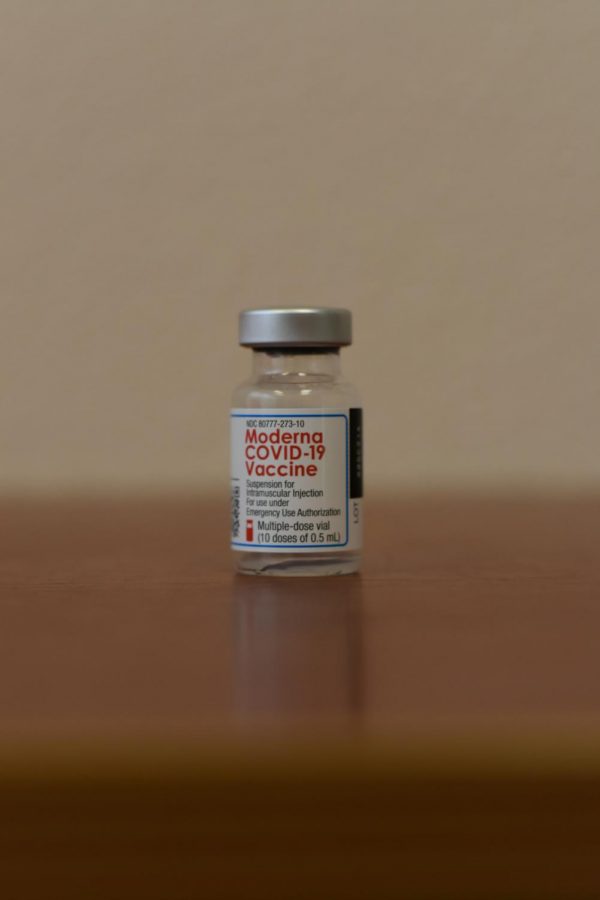Pizza and politics: The pandemic effect
November 7, 2021
Linfield University political science professor, Dimitri Kelly, and journalism and media studies professor, Kevin Curry, hosted a discussion called “Politics of the Pandemic,” on Monday, Oct. 25. This was part of the Pizza & Politics series put on by the political science department. Guest speakers included Dr. Jeanette Rainey, epidemiologist at Centers for Disease Control and Prevention, and Dr. Kyle Shaver, emergency physician at Willamette Valley Medical Center.
The experts were able to offer their insight on the status of COVID-19 in the United States, vaccination requirements, and how the pandemic has affected their job roles. Afterwards, Professor Curry discussed the role that the media has played throughout the pandemic.
Professor Kelly introduced Dr. Rainey, who presented via Zoom. Having worked at the CDC for 15 years including five years overseas, she has experience in many different aspects of the agency. While she has more recently worked on establishing incident management systems to support COVID response, the CDC also deals with response to natural disasters and other viruses such as Ebola.
According to official CDC data, Rainey said that since the U.S. first discovered COVID-19, there have been over 45 million cases and 743,926 deaths.
One of the key roles of the agency is to communicate CDC guidance and recommendations to the public. With a pandemic this contagious and with the ability to develop variants, the agency had to deal with receiving new information daily. Unfortunately, it seems that in today’s world this has resulted in an increased distrust of the media.
“We learn more as the pandemic evolves,” Rainey said. “Following signs and providing consistent messaging has been difficult.”
While over 400 million people have received at least one dose of the vaccination in the United States. However, Rainey made it clear that most hospitalizations are from unvaccinated people.
Rainey said that in hospitals, the number of beds available for people suffering from other conditions have been limited.
“Vaccines can help everyone, even if you’re not directly affected,” she said.
Next to present was Dr. Kyle Shaver, who shared his perspective on being someone who has had to treat COVID patients at the Willamette Valley Medical Center. Shaver told the audience about a few of the ways his job has changed with the coming of the pandemic.
Pre-COVID, when treating patients who had suffered a heart attack, he asked them what medications they take or are allergic to, how often they exercise, whether or not they smoke and how often they drink alcohol. These are normal and acceptable questions to ask someone coming into a medical center.
Now, it has become part of his protocol to ask patients suffering from COVID-like symptoms about their vaccination status and mask-wearing habits of themselves and their family members.
Vaccines have a lot to do with individual identity, and political parties are groups that people choose to identify with. When identity and politics mix, it can elicit an emotional response. Shaver says that even though vaccine status is completely valid to ask someone about as a medical professional, it makes him uncomfortable because there is a lot of emotional overlay attributed to it.
“Human brains are meant to create shortcuts. Many groups have incentive to identify threats because it strengthens group identity,” Shaver pointed out. Risks and benefits of the vaccine are not as successful when they’re framed as ‘good’ or ‘evil’ by the groups that individuals get their information from.
This last idea that Shaver shared was a great segway into the points that Professor Curry made about the media affecting our perception of facts. He started off by giving an overview of the role of journalism as a “public watchdog.”
“Anytime we make decisions, we need information and the media plays that role in providing information,” Curry said.
Regarding news media in the early stages of the pandemic, there was conflict between uncertainty and the race to report on news. Additionally, opinion and commentary media would feed off the gaps created by this uncertainty to generate conversation, Curry explained. Talk shows are meant to be emotional in order to increase the show’s ratings. Sometimes, these types of shows can be difficult to separate from the news media and therefore can lead to the spread of misinformation.
Social media can also affect public perception because there are no gatekeepers, who decide in traditional media practices whether or not information should go public. Social media platforms also don’t have as high of a responsibility as traditional broadcast media does to control the spread of misinformation, Curry said.
Regardless, Curry did have good news to contribute to the conversation. Despite people over 65 being the most prone to misinformation, 95% of them are vaccinated. He also encouraged the audience to not necessarily assume that everybody from the unvaccinated population is an “anti-vaxxer.”
“The greatest predictor of not being vaccinated was lack of health insurance,” Curry said. This would cause this population to be skeptical of the healthcare system.
In reality, there is a lot of confusion and concern about the vaccine, especially in rural communities. People just need to feel better about it from their doctors, family members, and communities before they decide to get vaccinated. As more and more people share their positive experiences with the vaccine within communities, Curry seemed hopeful that this would also increase vaccination rates in the United States.
Linfield students who are curious about pressing political topics should keep an eye out for the next Pizza & Politics discussion listed in Linfield Ahead.

